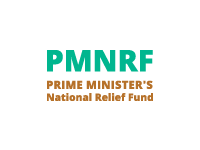Laboratory Animals Information Service Centre (ICMR)
Use of good quality (genetically and microbiologically defined) animals is essential for obtaining reliable and reproducible results in biomedical research and for the production and testing of drugs and vaccines. Most biomedical institutions, vaccine producing units and pharmaceutical concerns do not have their research and testing facilities. Setting up of an animal facility for production of good quality animals is very costly,time consuming and requires professionally qualified staff.It is for this reason that the laboratory animals information service centre was established by the Indian Council of Medical Research at the Cancer Research Institute, Bombay in 1956 with the sole aim of promoting the laboratory animal science in the country. Later it was shifted to the National Institute of Nutrition (NIN, Hyderabad) in 1976 to broaden its activities and establish it on a permanent basis.
Subsequently to meet the growing demand for high quality laboratory animals and to augment training and research facilities in the country a new National Infrastructural Facility for Laboratory Animals (NIFLA) was established during the 7th Five Year Plan with financial support from the Department of Biotechnology, Ministry of Science and Technology, Govt. of India. The centre has been recognised by the International Council of Laboratory Animals for all aspects of Laboratory Animal Science.
Following are the activities of the centre :
Breeding and supply of conventional and microbiologically defined animals
The centre is breeding and maintaining 4 strains of mice (Swiss,Balb/C Nude and C57 BL/6J),7 strains of rats (wistar/NIN, Fischer 344, Holtzman, CFY, Sprague Dawley, Copenhagan and Wistar kiyoto), 4 strains of guinea pigs (English coloured NIH Hurtley NIH coloured, Dunken Hurtley). Apart from these golden hamsters, New Zealand white rabbits and Rhesus monkeys are maintained. The mice,rats, guinea pigs and rabbits are supplied in microbiologically defined status. The various animals maintained in the facility are routinely supplied for the purpose of breeding and research work all over India,through train and air services. A total of 2.5 lakhs laboratory animals have been supplied during the last 5 years. It is likely to be increased by 25% during the coming five years period. The centre has plans to develop Cryopreservation of embryos of different strains of laboratory animals for long term stability and for the prevention of genetic drift.
Health and genetic monitoring of laboratory animals & development of animals & development of animal models
The centre has established Microbiology, Virology, Pathology Genetics & Biochemistry laboratories for monitoring the health and genetic purity of the animals maintained in the centre. Under the health monitoring programme, animals (retired breeders and random representative samples from the colony) are routinely monitored for pathogenic viruses, bacteria, fungi protozoa and other parasites.The microbiology department has developed a microbial identification kit for rapid identification and typing of bacteria which is now ready for patenting.
The laboratory animals are genetically monitored using various morphological, biochemical, immunological and molecular methods like skin grafting, mandible analysis, isoenzyme profiles, DNA finger printing etc. Recently two spontaneous mutants were identified from Wistar/NIN rat colony which are excellent animal models for the study of diabetes and obesity.
Consultancy services
Consultancy is provided for planning and layout of laboratory animal facilities and for the conduct of animal experiments. Advice is also given on space requirements, housing of animals, breeding and maintenance, experimental protocols and choice of animal models for research.In addition assistance and training are provided for conducting experiments including surgical manipulations.
Diet analysis
The centre has evolved its own animal feeds for various laboratory animals maintained in the facility. These feeds which are prepared in the form of pellets are developed using locally available ingredients. Diet ingredients and final feed pellets are routinely analysed for quality. This facility is also extended to outsiders. Attempts are currently being made to develop low cost animal diets based on soya and similar low cost protein source.
Dissemination of information
The centre encourages queries regarding various aspects of laboratory animals from the users and these are attended to immediately. It also publishs a bi-monthly titled "LAIS CENTRE NEWS" covering news on laboratory animals and this is sent free of cost to research institutes, colleges, university laboratories and Govt. and public sector Pharmaceutical companies, who are in the centre's mailing list. The centre has recently published a booklet entitled "Users guide for laboratory animals" which will be quite useful for both planners as well as experimental research workers. It has also prepared a brochure on the activities of the centre titled "National Infrastructure Facility for Laboratory Animals."
Training programmes
Formal and adhoc training programmes at supervisory and technicians levels are being conducted for animal house personnel every year to improve and augment human resources. The centre is recognised by the International Council for Laboratory Animal Science, (ICLAS) for training people from South East Asia and Africa.
Supply of blood and blood products
A programme has been started recently to supply animal blood(mouse, rat, hamster, guinea pig, rabbit, monkey and sheep) and its products at a reduced cost to the various local organisations and universities. This programme is quite a success and is well appreciated by the users.
Library facility
The centre has a well established library with more than 200 National and International periodicals and has a good collection of journals and periodicals in the field of Laboratory Animal Science in the country.
Liaison with Animal Welfare Board of India
One of the officers from the centre has been appointed as an honorary animal welfare officer of the Animal Welfare Board of India under the Ministry of Environment and Forests, Govt. of India.
For further details please contact:
Senior Research Officer
Laboratory Animals Information
Service Centre
National Institute of Nutrition
Hyderabad 500 007 A.P.
— Biobytes Vol.2,No.3,1994





















